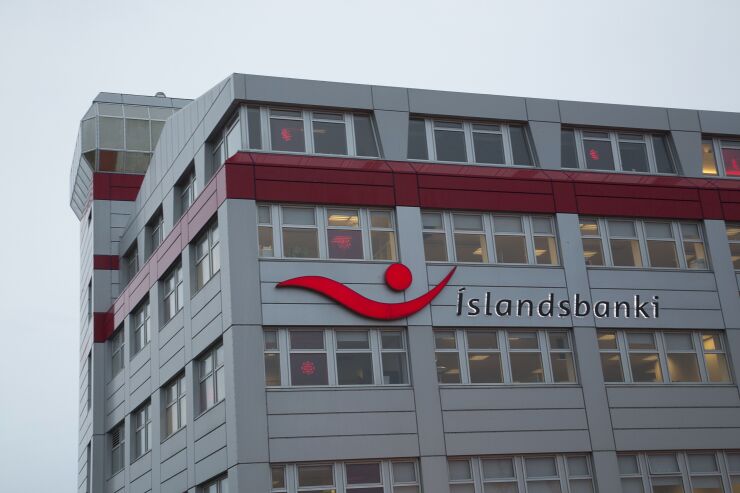Bungled Excel sheet hurts profits from Islandsbanki sale

An incorrectly formatted spreadsheet caused Iceland to price the sale of its Islandsbanki stake too cheaply earlier this year, an investigation by the National Audit Office has found.
The sale of a 22.5% stake in the bank in March sparked a public outcry and led to the government pulling the brakes on further divestments, as well as a decision to unwind Icelandic State Financial Investments, which manages the state’s holdings in banks and managed the sale.
A report published on Monday found that officials who oversaw the sales process were not aware of actual buyer demand, because data in the Excel spreadsheet they used was deficient. Some fields that contained the amount of investors’ offers included “foreign commas or amounts defined as text” and, as a result, the Excel spreadsheet did not include such offers as numerical information.

Arnaldur Halldorsson/Bloomberg
In the transaction, 450 million shares in Islandsbanki were sold in an accelerated bookbuild offering at 117 kronur ($0.80) each, but there was “significant” total demand at prices higher than that, the National Audit Office said, citing an analysis of the status of the offer book when the decision on the indicative final price was taken.
While the spreadsheet template was created by Islandsbanki, the report did not specify who entered the information incorrectly.
“A detailed analysis of the data, e.g. with the use of specially designed information systems for managing offers, could have provided a better overview of real demand and laid the foundation for a more accurate assessment of price formation,” the National Audit Office said.
Citigroup Global Markets Europe AG, Islandsbanki Corporate Finance and Securities Sales, and J.P. Morgan AG were joint global coordinators in the transaction.
Previously, criticism over the sale had centered around the selection of investors who were allowed to participate, including the finance minister’s father, persons involved in Iceland’s 2008 banking crisis and foreign investors, who had taken part in Islandsbanki’s initial public offering, but subsequently sold their shares. That reputational harm was also noted in Monday’s report, which placed the blame on ISFI, the Finance Ministry and committees in parliament.
Still, the sale was “generally favorable” to the treasury, despite the shortcomings, the National Audit Office said. Iceland’s government still holds 42.5% of Islandsbanki.


